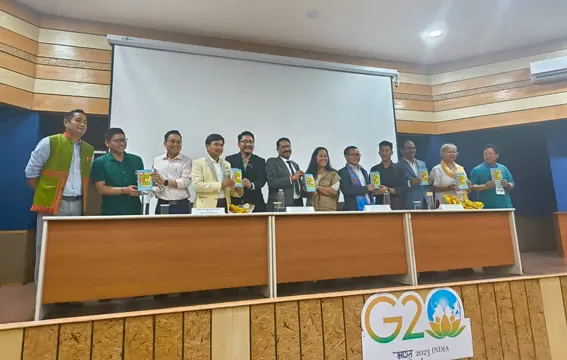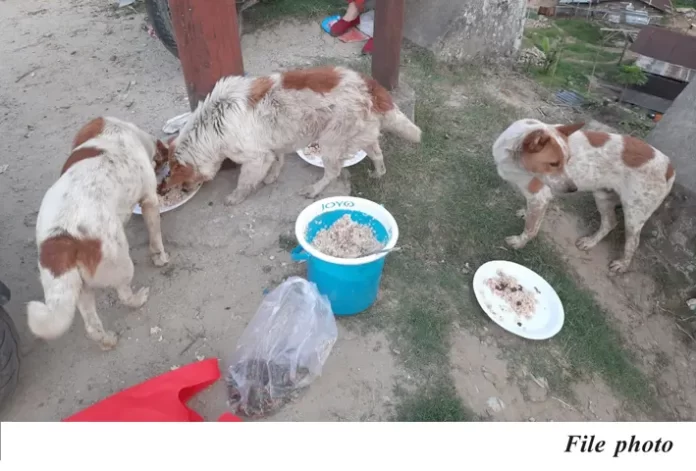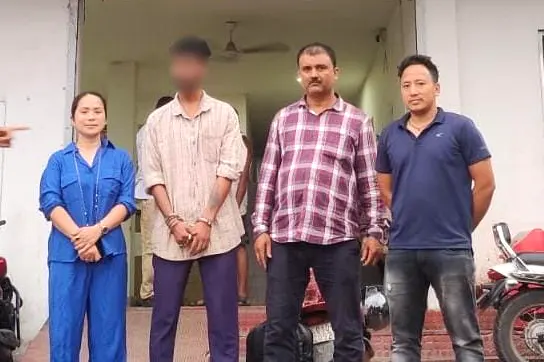[ Indu Chukhu ]
RONO HILLS, 30 Apr: the political science department of Rajiv Gandhi University (RGU) here organised a dialogue themed ‘The Chakma issue in Arunachal Pradesh: Search for a democratic solution’, on Tuesday which was disrupted.
Panellists, including social and political activist Jarjum Ete, Arunachal Pradesh State Human Rights Commission member Bamang Tago, and two Chakma representatives – Chakma Rights and Development Organisation president Mahendra Chakma, and Dr Gautam Chakma from Tripura University – were invited. However, the Chakma representative from Tripura did not attend.
As the event was proceeding towards the panel discussion, while RGU Vice-Chancellor Prof Saket Kushwaha was addressing the gathering, a sudden commotion erupted, involving a few unidentified youths, along with AAPSU general secretary Ritum Tali and it vice president (administration) Bengia Pillia, interrupting the event.
The commotion continued for about half an hour, following which tea break was announced.
The AAPSU leaders said that they had not been given any information and formal invitation to the event. They vehemently protested against the Chakma delegate speaking as a panellist.
The students and scholars in the mini-auditorium, where the event took place, expressed dismay over the interruption, saying that “it is an academic event here in the university, and such an act from the apex students’ body of the state is uncalled for.”
Meanwhile, neither the VC nor the Chakma representative could be seen during the commotion.
Ultimately, the discussions did not take place. Ete and Tago had come all the way from Aalo and New Delhi, respectively, to attend the event.
Speaking to the reporters present, Tago said that leaders of the AAPSU should have been invited.
“There must surely have been a misunderstanding in the process. The AAPSU is one of the major stakeholders in the dialogue process; hence its sentiments are understandable,” he said.
Ete said, “I have come all the way from Aalo to attend this. I wanted to hear the voice from the Chakma representatives. I first heard about the Chakmas when I was a kid. We had different assumptions on them. During the 1980s, we witnessed many students putting their careers on halt.
“After associating with the human rights movement, we have pondered on what solutions can be taken up with regard to the issue, considering the socio-political state of our state. The problem is still the same since the 1960s, and there is no solution yet,” she said, adding that “dialogues are very important in a civilised society.”
“We should focus on a humanitarian approach without losing our rights, in a negotiated public position,” suggested Ete.
“It is very unfortunate if there is any misgiving or any communication gap. Let’s hope that no such communication gap happens next time when such initiatives are organised,” she added.
AAPSU vice president (protocol) Nabam Gandhi, however, attended the event. On being asked about the situation, he said that he did not come representing the AAPSU “but only to attend the event.”
Gandhi had been invited by the organisers as he was heading the issue. However, it is learnt that he is no more associated with the issue.
However, a book titled Chakmas and Hajongs of Arunachal Pradesh: From India to India, authored by Prof Nani Bath, was released.
The book offers an understanding of the concepts of refugee, indigenous people, and citizenship. Prof Bath conducted in-depth research, visiting all the Chakma and Hajong inhabitations in Arunachal, Tripura and Mizoram, prior to writing the book, which is aimed at acting as a resource for scholars and students of human rights, politics, international relations, sociology, anthropology, history, and tribal studies.





